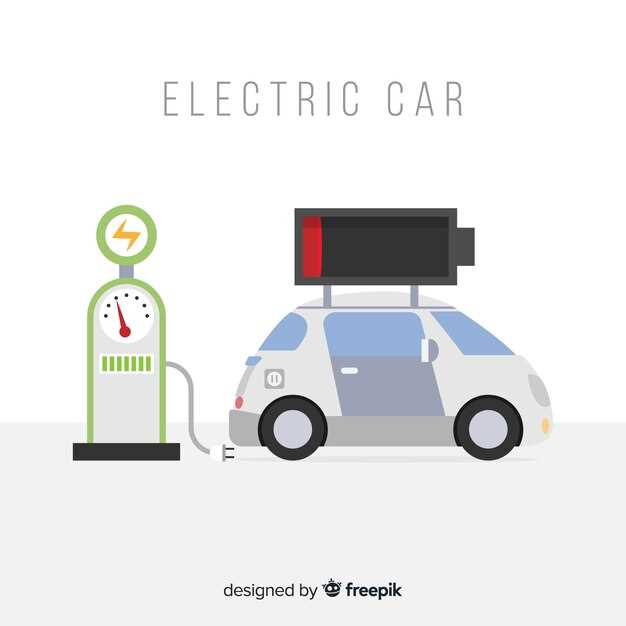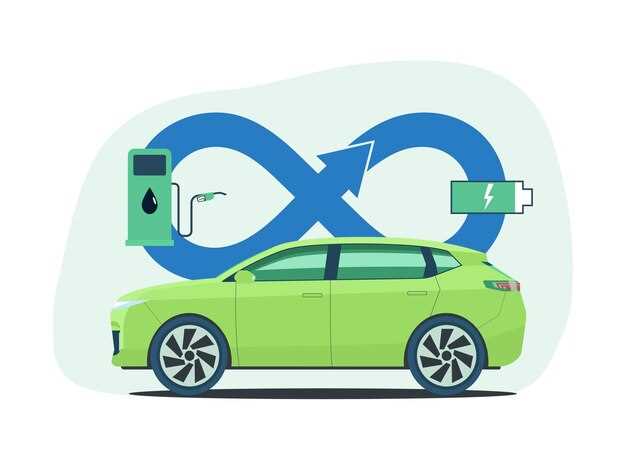
The automotive industry is witnessing a significant transformation as electric vehicles (EVs) gain traction and popularity among consumers. One of the key factors influencing a buyer’s decision is the long-term value of the investment. Traditionally, combustion engines have dominated the market, but the conversation around the resale potential of electric cars is becoming increasingly relevant.
When evaluating the resale value of vehicles, it’s essential to consider not just initial purchase price, but also the long-term depreciation rates associated with different powertrains. Research indicates that while electric vehicles may have higher up-front costs, they often achieve lower depreciation due to increasing demand and government incentives aimed at promoting sustainable alternatives. Understanding how these factors play out over time can provide potential buyers with a clearer picture of their long-term investment.
Moreover, potential owners must examine the broader implications of ownership, maintenance, and fuel costs. The efficiency of electric cars can lead to significant savings, contributing to their overall value proposition. By comparing the long-term advantages and potential drawbacks of both electric and combustion vehicles, consumers can make informed decisions that align with their financial goals and environmental concerns.
Analyzing Long-Term Ownership Costs of Electric Vehicles vs. Combustion Engines

When considering the long-term ownership costs of vehicles, two primary categories emerge: electric vehicles (EVs) and combustion engine vehicles (ICEs). One of the fundamental aspects to evaluate is the overall cost of ownership, which includes initial purchase price, maintenance, fuel, and potential resale value.
Initial Costs: Generally, the upfront cost of electric vehicles tends to be higher than that of comparable combustion engines. However, various government incentives and rebates can significantly offset this price. In contrast, ICE vehicles may require less initial investment but often come with lower resale values due to market saturation and shifting consumer preferences.
Fuel Costs: In the long term, fuel expenses differ dramatically between these two types of vehicles. EVs primarily rely on electricity, which can be substantially cheaper than gasoline or diesel. Additionally, the cost of electricity is usually more stable than fluctuating fuel prices. Over the years, the fuel savings of an EV can accumulate into a significant amount compared to the ongoing costs of fueling a combustion engine.
Maintenance Costs: Maintenance is another critical factor impacting the long-term ownership cost. Electric vehicles typically have fewer moving parts than traditional combustion engines, leading to lower maintenance costs. EV owners often benefit from reduced expenditures on oil changes, exhaust systems, and related components that are essential for ICEs. This reduction in maintenance can further enhance the long-term value of electric vehicles.
Resale Value: The resale market for electric vehicles is evolving. While early models of EVs experienced depreciation, the market is gradually recognizing the value of these vehicles. Studies indicate that EVs may retain their value better over time, especially as demand for sustainable transportation increases. Conversely, traditional combustion engines may depreciate more quickly due to environmental concerns and the push for cleaner alternatives.
In conclusion, when analyzing the long-term ownership costs of electric vehicles versus combustion engines, several factors must be considered. While initial costs and specific market dynamics can favor ICEs in the short term, EVs have the potential to offer significant savings in terms of fuel and maintenance, leading to a more favorable long-term financial outlook. Additionally, as the automotive landscape continues to shift toward sustainability, the resale value of electric vehicles may further enhance their long-term appeal.
Evaluating Resale Value Trends for Electric and Combustion Cars

resale value is a critical aspect when assessing the long-term cost of car ownership, influencing buyer decisions between electric and combustion vehicles. As technology advances and consumer preferences shift, understanding these trends becomes essential for potential car buyers and investors alike.
Electric cars (EVs) have traditionally faced challenges regarding resale value due to concerns about battery longevity and the rapidly evolving technology landscape. However, recent trends indicate a shift, with electric vehicles beginning to retain their value more effectively as charging infrastructure improves and production costs decrease. As more consumers embrace EVs, resale values are likely to become more stable, reflecting increased demand and a growing market.
Conversely, combustion cars have long been perceived as reliable in terms of resale value. These vehicles, deeply entrenched in the automotive market, often have established resale patterns. However, as governments implement stricter emissions regulations and consumers shift towards greener options, the resale values of combustion engines could experience depreciation more quickly than anticipated. The long-term cost of ownership for these vehicles may become less favorable as a result.
In summary, evaluating resale value trends is vital for informed purchasing decisions. Electric vehicles are gradually improving in terms of resale value retention, signaling a potential shift in the automotive market. In contrast, combustion cars may face declining resale values as environmental concerns grow. Ultimately, prospective buyers must consider these factors when making decisions that reflect long-term costs associated with their vehicle investment.
Assessing Maintenance Expenses over the Lifespan of Electric versus Combustion Vehicles
When evaluating the long-term value of electric vehicles (EVs) in comparison to combustion engine vehicles, one critical aspect to consider is maintenance expenses. Both types of vehicles require upkeep, but the nature and cost of maintenance can vary significantly.
Electric vehicles generally have fewer moving parts compared to combustion cars. This simplicity translates to lower maintenance expenses over time. For instance, EVs do not require oil changes, fuel filters, spark plugs, or exhaust systems. In fact, studies have shown that the average maintenance cost for electric vehicles can be about 30-50% lower than that of their combustion counterparts.
Conversely, combustion vehicles often incur higher maintenance costs due to the complexity of their internal combustion engines. Regular maintenance such as oil changes, timing belt replacements, and emissions system repairs contribute to a higher overall expense. As combustion vehicles age, the potential for major repairs, such as transmission or engine rebuilds, can further increase their maintenance costs.
Another important factor to consider is the impact of maintenance expenses on the resale value of these vehicles. While electric cars boast lower ongoing costs, their depreciation rates can vary based on market demand and technological advancements. However, as the technology matures, the resale value of electric vehicles is gaining traction due to their eco-friendliness and lower long-term operating expenses.
In contrast, the resale value of combustion vehicles is often affected by increasing fuel prices and growing environmental regulations. As more consumers opt for electric vehicles, the demand for combustion vehicles may decline, further impacting their resale value.
In summary, when comparing the maintenance expenses over the lifespan of electric and combustion vehicles, electric cars clearly demonstrate a long-term value advantage. Their lower maintenance costs and favorable resale potential make them an appealing choice for cost-conscious consumers looking for reliable transportation.


